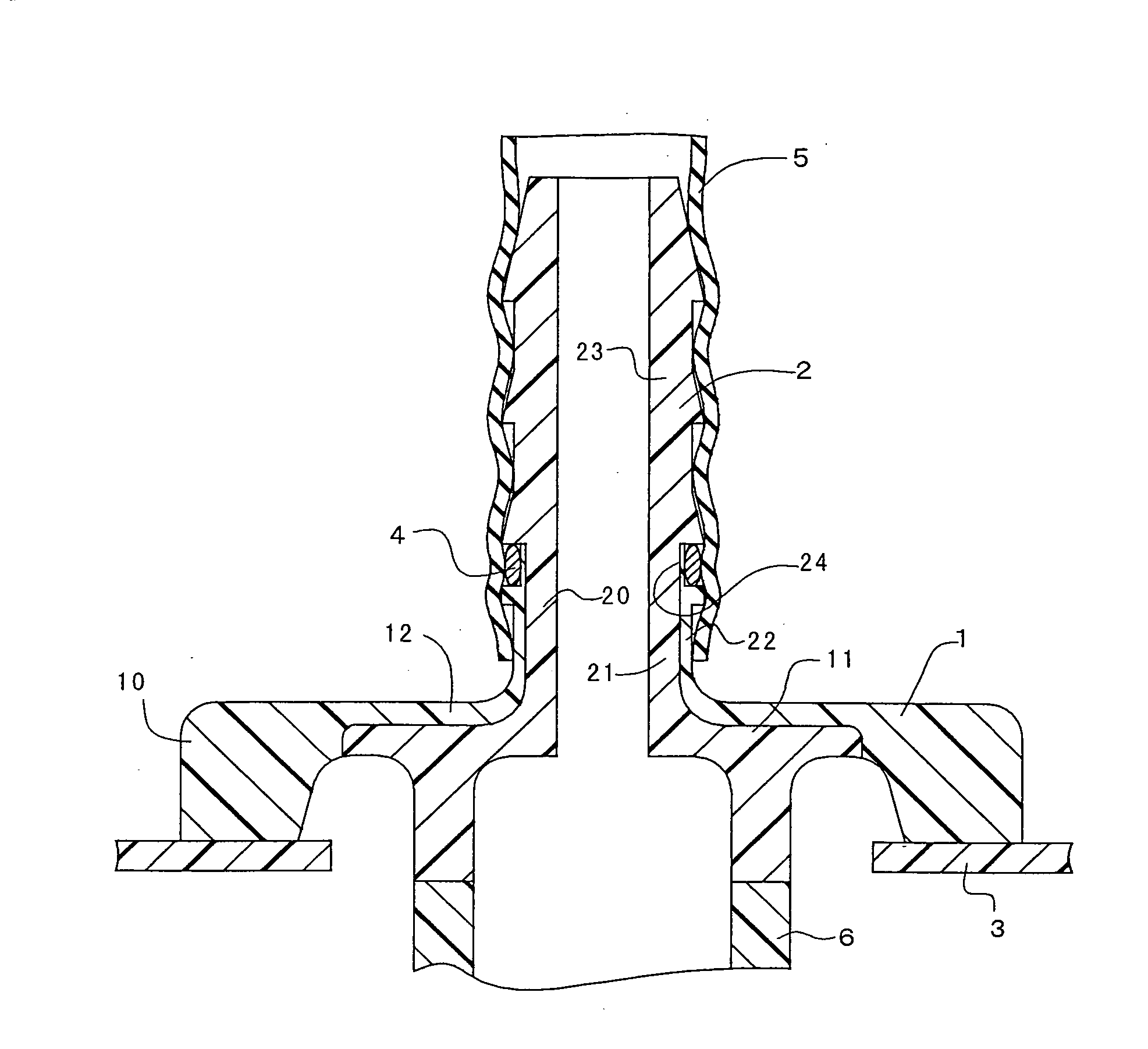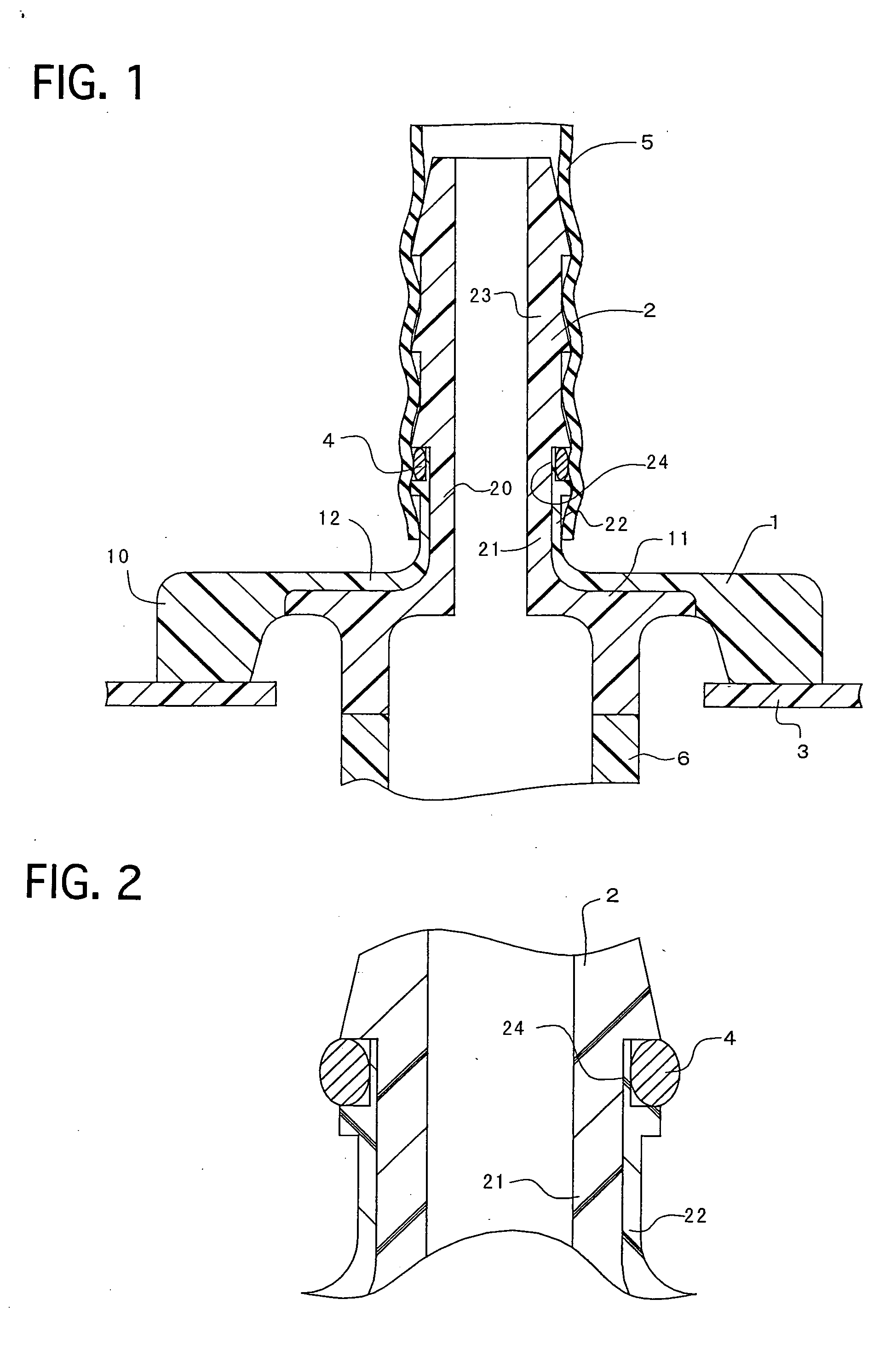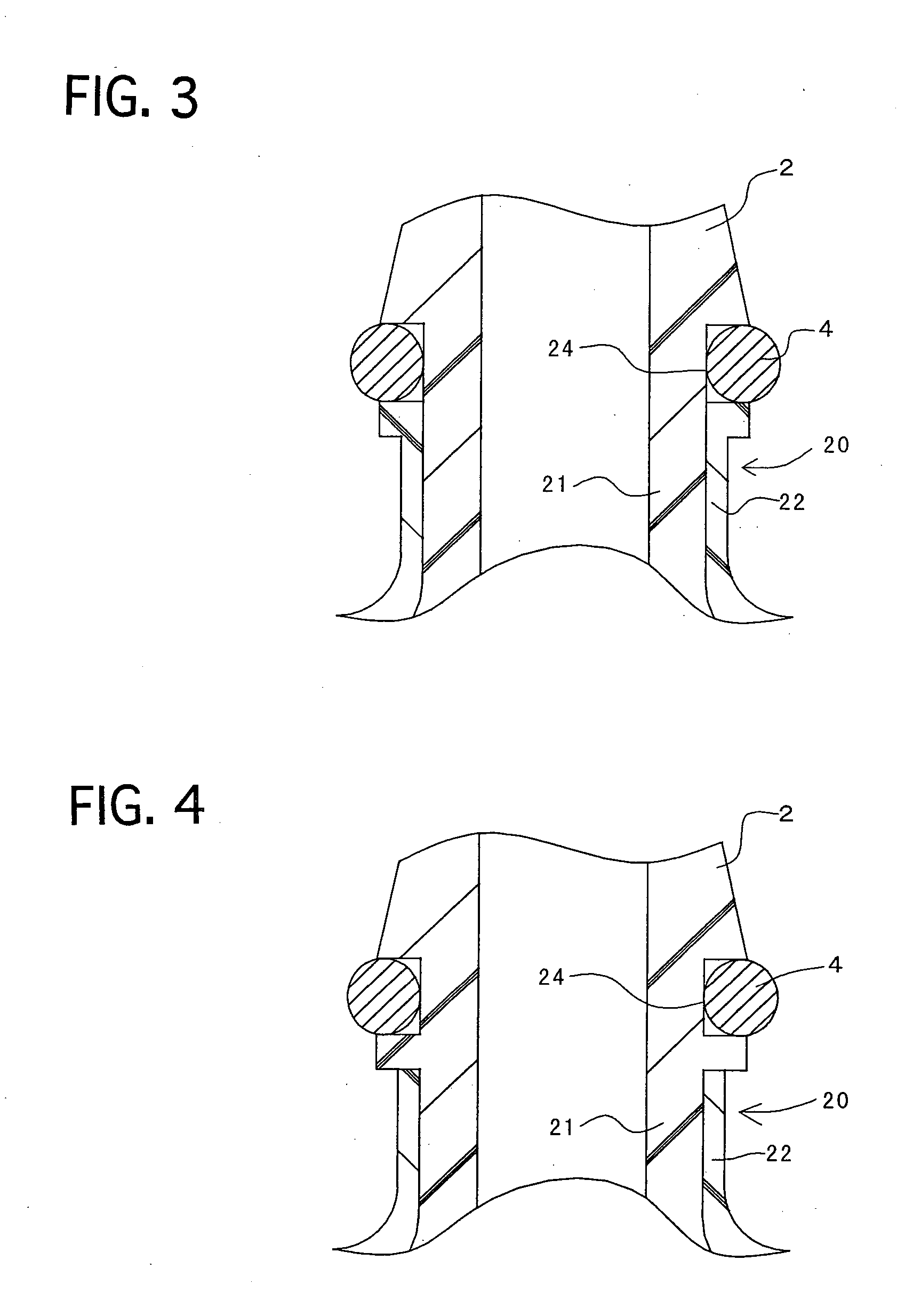Resinous connector
- Summary
- Abstract
- Description
- Claims
- Application Information
AI Technical Summary
Benefits of technology
Problems solved by technology
Method used
Image
Examples
examples
[0043] The present invention will be hereinafter described in more detail with reference to specific examples. Note that the present invention is applied to a connector for cut-off valves which are fastened to automobile fuel tanks, or a connector for breather tubes, in the present examples.
example no.1
Example No. 1
[0044]FIG. 1 illustrates a resinous connector according to Example No. 1 of the present invention, which is fastened to a fuel tank 3, which is equipped with an O-ring 4, and which is fitted into a hose 5 by press-in fitting, as the cross-sectional view. FIG. 2 illustrates an enlarged cross-sectional view when the resinous connector according to Example No. 1 is equipped with the O-ring 4.
[0045] The resinous connector comprises a flange-shaped base 1, and a fur tree-shaped nipple 2 which projects from the base 1. An outer periphery 10 of the base 1 is formed of an acid-modified polyethylene resin alone. Further, an inner periphery of the base 1 comprises a base inner layer 11 being formed of a polyamide resin, and a base outer layer 12 being formed of the acid-modified polyethylene resin. Furthermore, the base inner layer 11 is formed as a cylinder shape, and is fastened by welding to a functional component part 6 such as the housing of cut-off valves. Moreover, a root...
PUM
| Property | Measurement | Unit |
|---|---|---|
| Distance | aaaaa | aaaaa |
| Diameter | aaaaa | aaaaa |
| Resinous | aaaaa | aaaaa |
Abstract
Description
Claims
Application Information
 Login to View More
Login to View More - R&D
- Intellectual Property
- Life Sciences
- Materials
- Tech Scout
- Unparalleled Data Quality
- Higher Quality Content
- 60% Fewer Hallucinations
Browse by: Latest US Patents, China's latest patents, Technical Efficacy Thesaurus, Application Domain, Technology Topic, Popular Technical Reports.
© 2025 PatSnap. All rights reserved.Legal|Privacy policy|Modern Slavery Act Transparency Statement|Sitemap|About US| Contact US: help@patsnap.com



